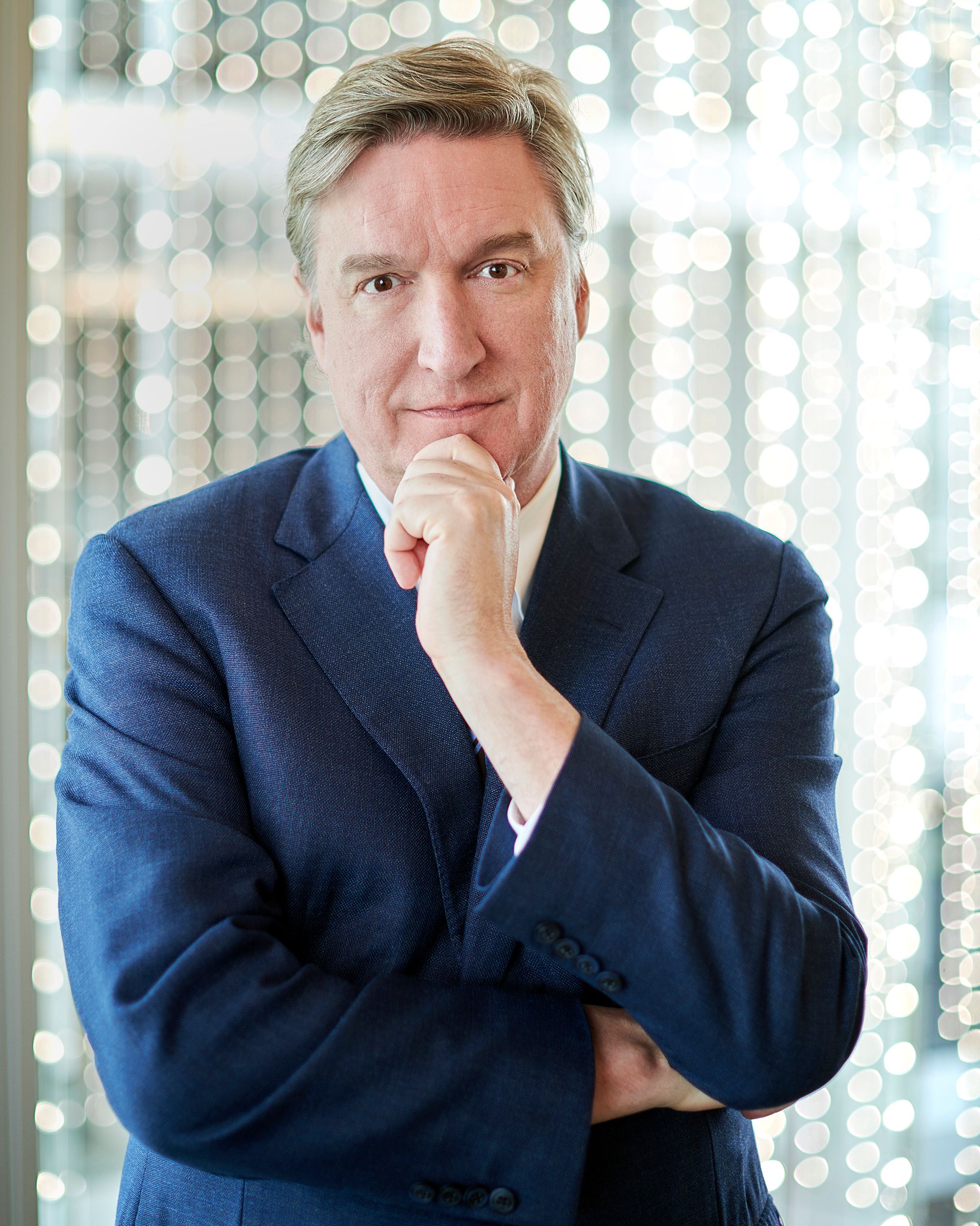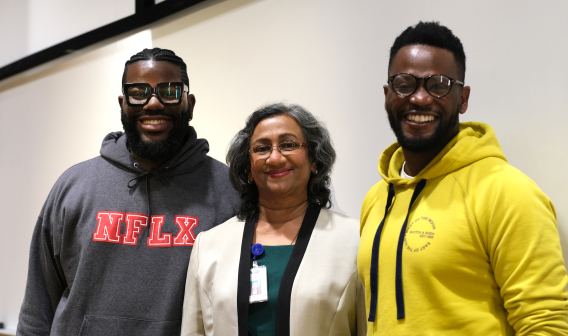
Byron Reese is an entrepreneur, speaker, author, and futurist. VEDP Executive Vice President Jason El Koubi spoke with Reese about the progression of technology and what it means for the future of the workforce.
Jason El Koubi: I’m curious about how you became interested in the intersection of all of these exciting topics — technology, business, science, and history. I’ve also got to ask, how does one become a futurist?
Byron Reese: I think I was born at a fortuitous time because oftentimes there’s a technology or some happening that defines the whole generation. I just happened to be born when it was this explosion of technology. I got out of university in 1991 and moved to the Bay Area to try to make my fortune, like, I guess, many of the gold rush pioneers before me.
I just got into technology there. I didn’t have a technical background. I got into artificial intelligence and had some success with that, and I started getting lots of invitations to give talks. Good speakers give the same speech over and over. I’m a bad speaker because I would always write a different talk, and people would always say, “What do you think about the future of ‘blank’? What is the future of transportation? What’s the future of this? What’s the future of that?”
El Koubi: Your work certainly covers a lot of interesting topics, and we’re really excited to connect, because the theme of this issue of Virginia Economic Review is focused on industries of the future. I’m interested, what emerging technologies do you think have the greatest potential for transformation, whether in society or industry or other areas of life?
Reese: There’s obviously computation and artificial intelligence, which is the main thing I write about. There’s robotics — computers are getting machines to think like we do. There are new kinds of materials that are being made and new ways to generate power. There’s nanotechnology, which is how things take on new properties when they’re at the microscopic scale. There’s biotechnology, where we’re learning a lot of the secrets of life itself and how we can harness that.
Then there’s blockchain. I’m not that interested in cryptocurrency per se, but I’m very interested in blockchain because it’s a technology where you don’t really have to understand how it works, but it’s useful to know what it does. Blockchain is a technology whereby people can deal directly with each other without having to trust each other, but they can do it confidently.
El Koubi: You’ve just sketched out a big list, and I’m wondering if you could put this all into historical perspective. One of your books is called “The Fourth Age: Smart Robots, Conscious Computers, and the Future of Humanity.” I’m interested in the title, “The Fourth Age.” There’s an obvious question there: What were the first three ages? And what characteristics make up this fourth age?
Reese: Humanity kind of goes along a trajectory, and something really big happens and changes everything. And I think the first one of these is when we got language, which is a technology, and is our singular technology as a species. It allows us to coordinate our actions. We got it at the same time we controlled fire because we were cooking meat, and that allowed us to consume more calories. We grew these big brains and developed language.
The second one, in my telling, would be agriculture. It wasn’t agriculture per se, but agriculture made us settle down, and we had cities, and cities are where we got the division of labor. And the division of labor is where all our prosperity comes from because if you specialize and you specialize and you specialize, we’re all better off for it.
The third one was when two technologies happened at the same time — writing and the wheel. We got them both 5,000 years ago. With those two things, you had everything you needed to create a nation-state, because you could promulgate laws and collect taxes and so forth.
I think those were the big turning points where technology really changed things. And so, I posit that we’re at this fourth one where these technologies are going to radically transform the world. When I talk on this topic, I only show one graph, and it’s this line. It’s the average world income for the last 2,000 years.
I first saw it at the front of Matt Ridley’s book, “The Rational Optimist: How Prosperity Evolves.” For 1,750 years, nothing happens. For 1,750 years, the average income of the world didn’t change. And then, about 1750, it turned and shot straight up, and what happened then was the scientific method. We learned this trick of being able to take what we knew and add to it and know more and add to that and add to that and add to that.
I think, with these technologies, that line is going to just shoot up as far as the eye can see, because we’re at this point where technology’s really multiplying what we’re able to do. Computers famously double in capability about every two years, and most technologies behave that same way.
What that means is that it took human civilization 10,000 years to make your laptop. But in two years it will be twice as powerful. And then, in two years it’ll be twice as powerful and in two years it’ll be twice as powerful. What happens is you get up to this place where we’re creating 10,000 years of progress every two years.
El Koubi: You talk about the relationship between AI and automation in the workplace. What are your thoughts on the ways that automation will reshape the workplace and also the workforce?




